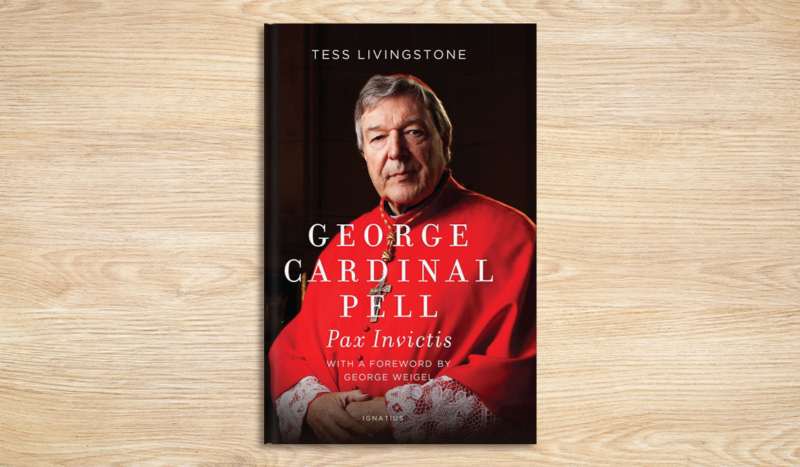
Barnes & Noble
CV NEWS FEED // Renowned Catholic author and scholar George Weigel has spotlighted the life and legacy of the late Cardinal George Pell (1941–2023) in the foreword to a newly released biography published by Ignatius Press.
The biography, recommended by Weigel as a meaningful Christmas gift, delves into the challenges and heroism of Cardinal Pell’s remarkable life, including his contributions to the Church and his time in Rome.
In his foreword, Weigel shares untold stories of Cardinal Pell’s adventures and personal trials, offering readers unique insights into his influential role within the Catholic Church, drawn from their enduring friendship of more than 50 years.
Cardinal Pell, the former Archbishop of Sydney, was appointed by Pope Francis in 2014 to oversee and ultimately reform the Vatican’s financial operations. In 2018, following a trial marred by a vicious media campaign, he was convicted of sexual abuse and spent more than a year in prison, primarily in solitary confinement. His innocence was eventually established, and the conviction was overturned in 2020.
Cardinal Pell passed away in 2023 due to complications following a hip surgery.
“Dramatic lives lived against the grain of the conventional wisdom of the day always draw violent criticism,” Weigel wrote in the foreword. “George Pell’s dramatic life certainly did, and his friends often had occasion to think that he deserved a better class of enemies.”
In first meeting Cardinal Pell, Weigel was struck by the “unaffected freshness of his personality and his utter lack of clerical pretense.” Weigel added that the Cardinal maintained these qualities throughout his life.
“He combined the rugged good humor (and vocabulary) of a star athlete with the intellectual edge of an Oxford-trained historian and the piety of a convinced Christian disciple,” Weigel said.
According to Weigel, the Cardinal was particularly comfortable around laypeople and children, a trait that set him apart from many other Catholic leaders. He “attracted deep loyalties,” not through demands for obedience, but because he was a genuinely “lovable man” who actively nurtured friendships.
Weigel added that Cardinal Pell approached his ministry with a focus on intellectual and cultural engagement rather than ostentation.
He noted that despite the media’s mischaracterizations at the time, “George Pell lived an earlier model of episcopacy: the bishop as an intellectual leader and champion of culture, the model pioneered by such giant figures of Western civilization as Ambrose and Augustine.”
In a book released after his death, Cardinal Pell heavily criticized Pope Francis’ Synod on Synodality for “deepening confusion” through its “neo-Marxist jargon about exclusion, alienation, identity, marginalization, the voiceless, LGBTQ, and displacement of the Christian notion of forgiveness, sin, sacrifice, healing, and redemption.”
After being released from prison, Cardinal Pell continued to be an influential figure in the Catholic world. According to Weigel, the Cardinal provided particular support to “those seeking courage from the turbulence of Francis’ pontificate,” who drew “strength from a strong man who, as the epitaph on his grave reads, ‘loved Christ and the Church vehemently.’”
“It was that love, not any personal animus, that prompted his public criticisms of the pontificate,” Weigel emphasized.
Weigel’s foreword concluded, “It was said when he died that the Church and the world wouldn’t see the like of George Pell again. Perhaps that’s true. I hope it isn’t. But if it is, the Church and the world will be the poorer for it.”
The book is available for purchase through Ignatius Press, major online retailers, and local Catholic bookstores. The full text of Weigel’s foreword can be read here.

